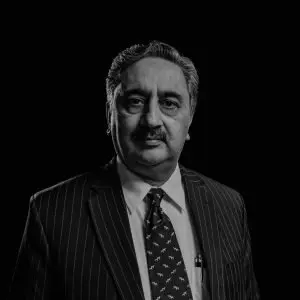
“Impetuously approved outlandish budget of high taxes on already weighed down classes for incessant fiscal timeline, followed by the unco tear-jerking headline underscoring the ferocious murder of Gujranwala’s resident by his elder brother over an overly levied electricity bill and the meagered lifestyle of my hometown’s widow grappling with a hefty responsibility of un-wed daughters within a highly inflated socio-economic climate, exacts every keen-eyed citizen to review the structure of PAKISTANI Social Contract.”
Westphalia’s well-known treaty inscribed in 1648 led to the modern “Nation-State” with its four fundamentals: territory, masses, government and sovereignty. After aforesaid historical development, copious politico-legal philosophy has evolved under the shadow of ‘Social Contract’ which is the basic theme of today’s Constitutionalism with a marked emphasis on Locke’s model centered upon life, liberty and property of individuals. In Nation-State’s context, appurtenant scholars come across multiple cataclysmic events in the life of each component of the Islamic state of PAKISTAN such as 1971’s colossal geographic vis-a-vis demographic turning point of the country along with numerous episodes filming the political narrative of ‘declinism of national sovereignty’ as a result of external intervention. In elucidating the existing relationship of Pakistani citizens to their state, a broad-based scholarly scrutiny of state’s government is much needed especially in an aura of progressed political instability which has inordinately affected the esteemed social contract throughout the post-independence timeline.
The government takes constitutionally as well as politically mandated role to fortify all other components of the state by retaining territorial status quo, preserving sovereign character in the International Arena, rendering fundamental rights to the masses and enforcing duties correlative to those rights through legislative will, executionary mechanism and judicial process. Wittingly, Pakistan’s every government has failed in all foregoing domains making the Social Contract tormented since the country’s birth. Tenacious failure is recorded in guaranteeing ordinary taxpayers’ fundamental privileges vis-a-vis duties as a result of withholding voters’ Will and de-railing Constitutionalism while fostering self political good. This whole saga leaves many socio-political cum legal factors quiescent as PAKISTAN stands at 129th in Rule of Law, 164th in HDI, 145th in the Gender Gap Index issued by WEF, 133rd in Corruption-Index with least score of 29 in transparency, and Judicial Sector at 129th as of 2023-24.
In sorting out the historical cause of the political system’s failure in reaching its terms of the Social Contract, a curse could be traced back to the very initial stage of the country’s life. In a luckless move unlike India, soon after creation, charismatic political leadership’s vacuum was created due to the demise of founding fathers like JINNAH & LIAQUAT A. KHAN which left the country at the crossroad of a highly heterogeneous newly emerged socio-political cum religious society. The leadership vacuum entrusted an unfortunate opportunity to the colonial-oriented vis-a-vis power-hungry civil and armed bureaucratic brass to lay down the foundation of till-date non-reversible unconstitutionalism in Pakistan by abrogating the very first supreme legal scheme dated 1956.
The abrogation of 1956’s Constitution proved a “Political Immuno Deficiency Syndrome” (PIV) which shattered civilian cause, democratic notions, rule of law and the political system of the Islamic State by popping out with more strength later on in 1969,1977, and 1999. Heretofore, no civilian political leadership could make the state immune from this politically minacious virus. The underlying self-induced stimulus for such a failure on the part of the civilian setup is vested in the fact that till-date every succeeding political party had to have a contractual deal with the military establishment to get into power. After getting the administration of country’s governance structure on such non-democratic wavering terms, every regime struggles for its survival by fulfilling the contractual terms with the military establishment rather than voters who ostensibly hand over political mandate via a voting system. Withally, every ruling junta tries to stricture all dissenting political factions through hasty and malafide legislation. Amid above-stated impasse, government toils legally or constitutionally for its political good rather than common good of the people leading the country towards “Political Good Constitutionalism”.
‘Political-Good Constitutionalism’ is conspicuous in a bulk of self-oriented and malafide-themed legislation metamorphosed into law in a cursory manner. It includes major changes in the accountability watchdog’s legal scheme coupled with wide-reaching bureaucratic transfers in the accountability domain to hijack the investigating process, amendments have also been brought about in ‘Election Laws’ to junk the opposition from the mainstream by nullifying the effects of a judicial verdict, and lastly, many laws have been instigated related to apex judiciary under the brand name of judicial reforms because judiciary could always be an obstacle in reaching out illegitimate political goals.
Judiciary-centered legislation includes debate sparking the “Supreme Court Practice and Procedure Act” ( the Act ) which was a boon to the court’s internal independence though passed in bad faith but recently issued ‘Presidential Ordinance’ of amendment in the aforesaid Act has made the Act redundant just for the sake of self political good by vindicating Muneeb Akhtar J.’s prophecy that the legislature would emerge as ‘Master of the Roster’ through the Act. Appointment of recently retired specific Justices as ad-hoc Judges and attempts to increase the court’s composition via an Act of Parliament are other tools in the guise of tackling cases backlog.
In furtherance of political good, the nation observed grave violation of the Constitutional Scheme in the form of a calculated unconstitutional delay in general elections following the completion of the 15th National Assembly’s tenure whereby Caretakers vis-a-vis ECP, endorsed by incumbently reigning political characters, held the Constitution in abeyance and made transition to a more politically lethal concept “Political-Good Unconstitutionalism”. The difference between ‘Political-Good Constitutionalism’ and ‘Political Good Unconstitutionalism’ is that the former is just a moral ill but latter is a moral as well as legal ill.
Amid aforesaid constitutional abeyance, the judiciary also corroded its obligation under social contract as it could not jealously guard the “Right to Vote vis-a-vis Right to be Governed” while keeping its contempt power intact. To permanently lock the portal of unconstitutionality in PAKISTAN, impunity of those who contravene, hold in abeyance, or abrogate the Constitution needs to be curtailed and this curtailment is a flesh that would clothe the dry bones of Article 6. SC’s Athar Minallah J. also highlighted the high need for this impunity’s curtailment in his note penned in ‘Election Case’ by stating that “It is a duty of the courts to put an end to impunity against the violation of the Constitution and constitutional rights”.
Currently, national politics is dumb-found with newly passed politically motivated constitutional amendment which is a major turning point in country’s constitutional history with a great tendency to unlock many politico-legal controversies in the political system. Rendered constitutional changes would corroborate supplemental politicization of the Constitutional Bench and particularly of the Chief Justice of Pakistan (the CJP) appointed by the Committee provided in the Amendment, there would be a jurisdictional issue before the court in most of the litigation, distinctive judicial stature of the Constitutional Bench (deemed parallel to the whole SC) would create strife within the court, there is prevalent nebulousness in text that how Parliamentary Committee shall proceed to appoint the CJP if first nominee declines the offer.
Furthermore, the Amendment provides for a situation where the CJP could be a part of the Constitutional Bench even as its Presiding Judge whereas amended Article 191A (2) stipulates that the senior most judge, amongst judges nominated for the bench, shall be the Presiding Judge of Constitutional Bench so to elucidate the underlying nexus between the CJP and Presiding Judge of Constitutional Bench, the odds-on interpretation of seniority principle would be required. If seniority is determined by the timeline of judicial service of a Judge at Supreme Court then the third senior most Judge, nominated as the CJP by Parliamentary Committee, wouldn’t be eligible for presiding the Constitutional Bench under Article 191A (2) in the presence of first or second senior most Judge (of the panel sent to Parliamentary Committee for CJP’s appointment) in the Constitutional Bench.
The concept of the Constitutional Court and the 26th Amendment are coterminous. The author of Pure Theory of Law-Hans Kelson-introduced the idea of constitutional courts to make the parliamentary system subordinate to constitutional scheme mainly in Europe where there was no judicial mechanism of constitutional review. Hence, a new judicial setup proposed in the initial draft, parallel to the Supreme Court with an already judicial power of constitutional review, was fatuous for Pakistan politically as well as constitutionally.
Through erudite analysis of the contentiously proposed first draft of the 26th Amendment, it is legally well-versed to hold that the ‘Center of that Proposed Draft of the Amendment’ was the establishment of a Constitutional Court around which the rest of the proposed changes revolved except a few independent changes related to electoral watchdog and service of military brass whereas the ‘Center of Judicial Review of that Proposed Draft’ was the method of appointment of judges of the proposed court which touched one of the yardsticks of “Constitutional Basic Structure” referred as “Independence of the Judiciary”. The whole scheme of that proposed draft, from Article 17 to Article 63-A besides Article 175-A, 189, 190, 191, 215 etc., was to serve the ruling section’s political good so there could not be a better manifestation of Political-Good Constitutionalism than that proposed draft of 26th amendment to 1973’s Constitution.
How legal fraternity and political leadership, conspicuously JUI(F), retorted to initial draft is praiseworthy as their response compelled the government to adhere to an actual panacea to the issue of pendency of cases. The solution entails increasing the number of judges at all levels including Supreme Court, widening the scope of ADR, framing a timeline for deciding cases, and formation of the Constitutional Bench at High Courts and the Supreme Court which the 26th Amendment has done but with a reversion of initially proposed government’s draft w.r.t “Independence of Judiciary”.
The vital judicial test of the 26th Amendment is determining the Parliament’s competence to appoint the Chief Justice of Pakistan ( the CJP ) among a panel of three senior most judges through its ‘Parliamentary Committee’ as this criterion distinctly clashes with judicial independence by allowing any government to appoint its liked Justice as the CJP and then to maximize the CJP’s powers to handle rest of the court so it’s a prognostication that soon after the appointment of 26th Amendment’s CJP, government will retrograde the CJP’s powers which were tried to curtail via 2023’s Act, furthermore, situation would be more startled when the Chief Justiceship will be aggrandized by nominating the CJP as a member of the Constitutional Bench with the status of its Presiding Judge as well. The other two aspects that require a thorough ‘Constitutional Test’ by the court are the fixation of newly established Constitutional Bench by newly composed “Judicial Commission of Pakistan” (the Commission) where the ruling regime is apparently prepotent and evaluation of judges’ performance by the Commission.
In the passed Amendment, the most alarming assail on judicial independence is the appointment of Constitutional Bench’s judges through a forum befitting to government. Throughout the country’s judicial history, the Supreme Court has been vexed because of its prejudiced rulings in political based ‘Constitutional Cases’ rather than appeals of private citizens. As now the burden of prejudiced w.r.t ‘Constitutional Cases’ has shifted to the Constitutional Bench so Judges of such Bench should be wholly non-aligned, regarding their appointment or removal, with the government who could be a party in ‘Constitutional Cases’ before such judges. The method of appointment and removal of judges is a decisive element for ensuring judicial independence and parliament cannot be given upper hand in judicial appointments under the semblance of “Parliamentary Supremacy”, especially in a parliamentary democracy where executive practically controls legislature.
While fractionating ‘Social Contract’, private citizens are also entitled to opprobrium. In a democratic system, the highest political office is that of private citizens as held by SCOTUS’ Louis Brandeis J. The robustness of democratic governance is measured by the active participation of private citizens in the socio-political affairs of a country. The active participation should always be corroborated by effective and empirical participation in the voting system. Nevertheless, there has been a huge craze for electing such political leadership which tramples down Civilian Will and shows zilch respect for the Rule of Law as characterized by the foregoing terms. Through such somnolent participation in governance system, a citizen makes the political system brittle and perhaps that’s why the concept of ‘Parens Patriae’ seems extraneous to the government of the Islamic Republic of Pakistan.
In the synopsis of the whole above-written analysis of Social Contract, it is astute to assert that “the Ruler-Ruled Mutuality in Pakistan” could be remedied only by exercising the ‘Right to Vote’ in the right way and then by remaining watchful for the protection of the effects of that exercised right from the despotic cum unconstitutional influence of de-facto forces.
The ‘Right to Vote’ could only be exercised in the right way when it ensures that government is the right of only that political party whose political conduct prioritizes ‘common good’ instead of its own ‘political good’ by furthering the “Rule of Law and Civilian Supremacy”.
—
Muhammad Usman Adil – an undergraduate student of law – School of Law Quaid-i-Azim University Islamabad – Pakistan . His areas of interest are Constitutional Law and Legal Theory. He can be contacted at m.usmanadil085@gmail.com




